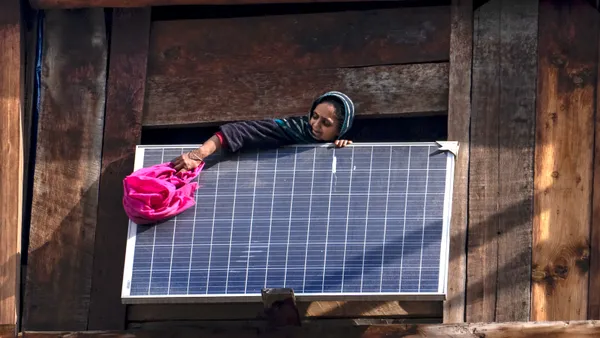Dive Brief:
- The International Sustainability Standards Board — borne out of the coalescence of multiple sustainability reporting organizations — has finalized its work plan for 2024-26 and will focus on further driving the streamlining and consolidation of the sustainability reporting landscape, the International Finance Reporting Standards Foundation said Monday.
- While ISSB will also take on research projects related to biodiversity and human capital, the organization said it will prioritize improving transition plan disclosures and greenhouse gas emissions measurement, continuing to seek full interoperability with the Global Reporting Initiative and expanding its partnership with the Carbon Disclosure Project.
- IFRS said last month that jurisdictions representing 55% of the global gross domestic product are aligning or incorporating the ISSB standards into their legal or regulatory corporate sustainability reporting frameworks.
Dive Insight:
ISSB said it received more than 400 public comments in response to its request for comment on its work plan, and commenters said its supporting implementation of its IFRS S1 and S2 sustainability frameworks should be the organization’s “highest priority,” according to ISSB’s feedback statement also released Monday.
ISSB said because of the feedback it received, support for implementing its inaugural sustainable standards will be given the most focus over the next two years. Its new research projects and plans to enhance the Sustainability Accounting Standards Board’s framework will both be given equal attention, but a “slightly lower level of focus” than ISSB’s own standards, according to the feedback statement. The biodiversity project will seek to build off the work of the Taskforce on Nature-related Financial Disclosures, the feedback statement said.
“Since the outset, the ISSB has worked to reduce the complexity of multiple sources of sustainability reporting initiatives, while building on the established expertise and practice associated with market-leading frameworks and standards,” ISSB said in a release. “During the next two years, the ISSB will deliver further harmonization and consolidation of the disclosure landscape in response to market demand.”
The sustainability standards board’s work on transition plans will focus on providing “high-quality, decision-useful information about the plans that companies have … rather than requiring that companies engage in transition planning, per se.” To do so, the organization will assume responsibility for the disclosure-specific materials that the Transition Plan Taskforce developed based on the United Nations-backed Glasgow Finance Alliance for Net Zero, ISSB said in the release.
The organization is not looking to change the reporting requirements in its S2 standard for climate-risk disclosure, it aims to tailor its educational materials to ensure their broad applicability.
The IFRS Foundation also announced it signed a memorandum of understanding with the GHG Protocol, which provides standards for how greenhouse gas emissions should be calculated. As part of its agreement, ISSB had a member appointed to the GHG Protocol Independent Standards Board as an observer to help ensure ISSB is engaged in any updates made to GHG Protocol guidance.
IFRS announced a push towards full interoperability of the ISSB and GRI standards last month and reiterated that commitment as a part of its work plan. ISSB also said Monday that CDP has officially opened a new platform for more than 75,000 organizations earlier this month and its 2024 questionnaire is aligned with ISSB’s IFRS S2 standards.
“As we embark on our new two-year work plan that will see us strengthen and build out the global baseline of sustainability-related financial disclosures, I am grateful to our partners in the sustainability reporting landscape for their commitment to delivering an efficient, effective sustainability disclosure system for capital markets,” ISSB Chair Emmanuel Faber said in the release.











